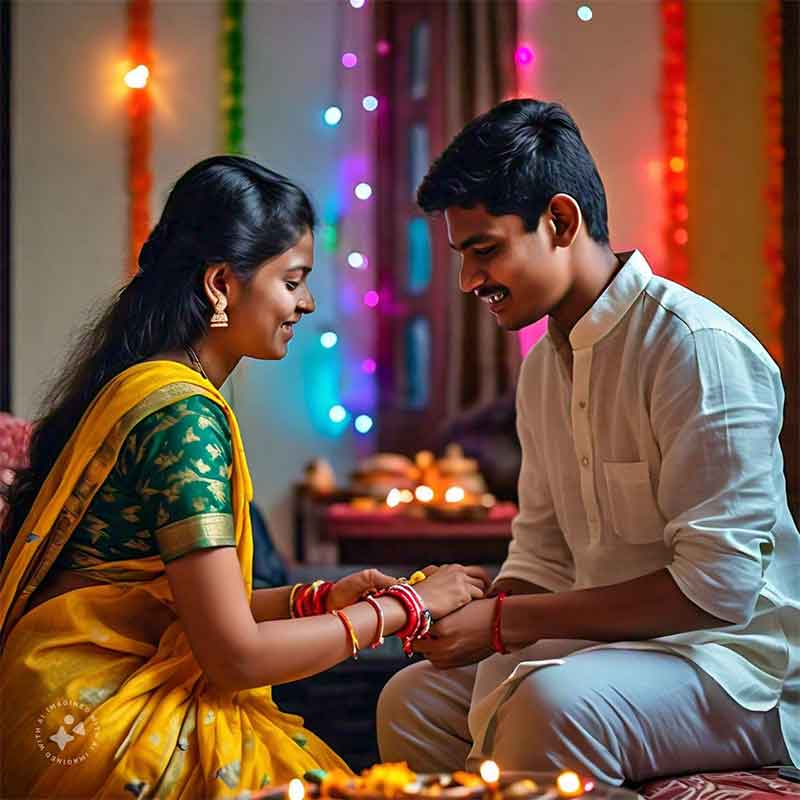
Introduction
Rakshabandhan is one of the most celebrated festivals in India, it has immense historical, cultural, and social value in India. Different people ascribe the origins of the festival to different events, ranging from the mythological stories to the quasi-historical narrative of Humayun and Queen Karnavati, which is heavily disputed by actual historians. Nevertheless, most of the people of the nation project Rakshabandhan as a symbol of love between brothers and sisters. For many other people, Raksha Bandhan symbolizes the traditional gender-defined role of the male as the protector of women, where women are seen as passive recipients of their destiny, and thus represent a regressive tradition of venerating the patriarchal masculine tradition. But there are two more elements of the festival, which people have seldom taken into cognizance, and which can prove to be a more realistic assessment of the festival, rather than defending it as an inalienable part of our culture or shunning it as a regressive tradition altogether.
Rakshabandhan- Commemoration without Explanation
Our society at large suffers from historical amnesia, which is to say, that we lose track of the reasons and factors that shaped our values and traditions. We lack the spirit to logically engage with our traditions and thus find it convenient to blindly adhere to our traditions, simply because they don’t know how to engage with their own past. How many of us care to understand the etymology, history, sociology, and socio-cultural and economic context in which a tradition is developed? Why does a particular tradition continue to be practiced even when the sense of urgency or even the need for that particular tradition is depleted? The history of Rakshabandhan is definitely rooted in age-old patriarchal norms, but it is no longer practiced for the same reason. What fosters the festival in today’s time is the ignorance of our identity, culture, and tradition and the growing hyper-cultural nationalism in India, which is diminishing the space for critical introspection and engagement with the culture, and promoting the blind engagement with one’s culture, simply because the attack on a particular festival in today’s time is seen as an attack on the cultural identity of the majoritarian religious community.
Rakshabandhan is the Modern Consumerist Society
We are living in a consumerist, capitalist society, where every festival, and every ritual has been fetishized beyond recognition. The demands of the festivals are dictated by the market forces, who have converted the intangible bond of brother and sister into a tangible object. The market is full of chocolate boxes, hampers, gifts, and other objects, which act as proof of our love and bonding with your sister. Rakshabandhan is one of the most significant festivals in India, which is captured by the market, and which is promoted more by the capitalist forces for profit motive than the actual practicitioners. A month before the festival, television, and social media were bombarded with advertisements of the festival, making one feel obliged to play at the gallery. In a capitalist society, joint families have given way to nuclear families, and in many cases, an isolated or nomadic existence. In such a context, an individual often feels natally alienated and culturally uprooted. In such a scenario, Rakshabandhan acts as a cultural adhesive to make one feel connected to their cultural roots, albeit temporarily. Thus, Rakshabandhan becomes a coping mechanism for individuals, who are both a participant as well as a victims in the capitalist system.
Subscribe to Our Newsletter
Get the latest CounterCurrents updates delivered straight to your inbox.
Conclusion-
We need to recognize that cultures and traditions are neither created nor destroyed in a day. They are part and parcel of the complex interaction between different socio-cultural, political, and economic factors. In the context of Rakshabandhan, there is a need for deep introspection about the problematic roots of the festival, which celebrates and reinforces patriarchal norms in society through cultural appropriation and symbolic gestures. But we also need to address the reception and consumption of the tradition by the society at large. Only then we will be able to address the question of the ignorance of the masses, and the continuation of an archaic practice, which is not compatible with modern society. A capitalist economy repackages and renews the old practices into a modified form, which makes them attractive for new people, who are not aware of the historical precedent of the tradition. As long as the festival remains commercially viable, the festival will remain in vogue in new designs and new packaging. So, the problematic aspects of Rakshabandhan need to be challenged, not only in the context of its discourse but also in terms of its practice, commemoration, and appropriation. Only then, we would be able to address the problem in its entirety and not just its theoretical discourse, which has little to no relevance in modern times.
Santosh Kumar, PhD Scholar, Department of History, University of Delhi









































